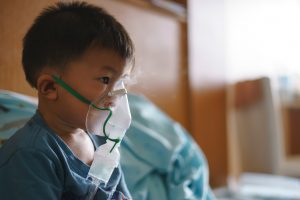 Both the new school year and flu season are approaching, and with other viral illnesses such as respiratory syncytial virus (RSV) and COVID-19 continuing to spread, it’s important to prepare your child with effective habits and strategies for staying healthy. Follow these tips to keep them (and the rest of your family) disease-free this fall:
Both the new school year and flu season are approaching, and with other viral illnesses such as respiratory syncytial virus (RSV) and COVID-19 continuing to spread, it’s important to prepare your child with effective habits and strategies for staying healthy. Follow these tips to keep them (and the rest of your family) disease-free this fall:
Get your child vaccinated: Many schools require students to receive the immunizations recommended by the Centers for Disease Control and Prevention (CDC) for their age group. This is a simple, effective method for boosting your child’s natural protection against some of the most common diseases they are likely to be exposed to at school.
Emphasize good hand-washing habits: Your child can come into contact with many different types of germs, bacteria, and viruses while they’re at school or traveling to or from home. Some of these substances, such as cold germs, can live for up to 24 hours on hard surfaces and up to an hour on hands; others, such as the flu, can last much longer, living on hard surfaces for up to 48 hours. Regular, thorough hand-washing is essential for minimizing your child’s contact with these germs and reducing their likelihood of becoming infected.
Take your child to a doctor if they feel sick: If your child starts to feel ill, you can reduce the amount of time they spend feeling sick (and, potentially, the amount of school days they may have to miss) by taking them to a doctor right away. A doctor can prescribe certain medications, such as antivirals or antibiotics (depending on whether your child has a virus or bacterial infection), and recommend other medications and treatments for relieving their symptoms effectively.
If your child has an infection, you can receive specialized treatment at Forest Hills Pediatric Specialists. To schedule an appointment or for more information about the office, please call (718) 704-5020.
All content of this newsletter is intended for general information purposes only and is not intended or implied to be a substitute for professional medical advice, diagnosis or treatment. Please consult a medical professional before adopting any of the suggestions on this page. You must never disregard professional medical advice or delay seeking medical treatment based upon any content of this newsletter. PROMPTLY CONSULT YOUR PHYSICIAN OR CALL 911 IF YOU BELIEVE YOU HAVE A MEDICAL EMERGENCY.

